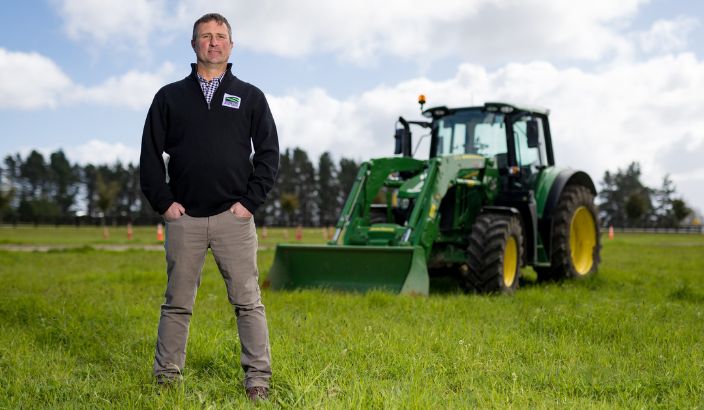Regulate the coating, not the treated seed - Feds

‘We believe it makes more sense to regulate the chemicals in the coating directly, rather than applying regulations to the treated seed,’ says David Birkett, Federated Farmers Arable Chair and Biosecurity Spokesperson. Photo: Supplied.
Proposed changes to the classification of seeds coated overseas with novel chemicals could see them treated as hazardous substances under New Zealand law.
If implemented, the change would require such seeds to undergo Environmental Protection Authority (EPA) approval, along with stricter rules around import volumes, storage, and transport—adding compliance costs and regulatory pressure for farmers, growers, and seed companies.
David Birkett, Federated Farmers Arable Chair and Biosecurity Spokesperson, says the proposal stems from concerns about unregistered chemicals entering the country—an issue he acknowledges needs attention.
However, he argues that a more balanced approach would be to regulate the chemicals directly, rather than treating the coated seed itself as a hazardous substance.
“Up until now, imported seeds have been managed at the border by following the specific instructions for the chemical used in the seed coating,” explains David.
“The current proposal, however, would change that approach—treating the seed itself as a hazardous substance rather than regulating the chemical it’s coated with. We believe it makes more sense to regulate the chemicals in the coating directly, rather than applying regulations to the treated seed.”
Federated Farmers has submitted feedback on the Proposed Group Standard for Treated Seed, pushing back against the changes. David says he’s hopeful that, with many others also making submissions as part of a united industry response, the collective input will carry weight and lead to changes in the proposal.
“If the proposal goes ahead, it will bring changes to the volume of seed you can have, as well as how it’s stored and transported. When the chemical residue on the seed is minimal, it raises the question—why impose full regulation on such a small amount?”
New Zealand imports 92–95% of its vegetable seed, while arable farmers play a vital global role—exporting 40% of the world’s carrot seed, 60% of radish seed, and 50% of white clover seed.
David says these crops are efficiently multiplied from imported seed and re-exported within tight timeframes, meaning the proposed regulation could have significant implications for the entire sector, as well as have a flow-on effect to food security both here and abroad.
